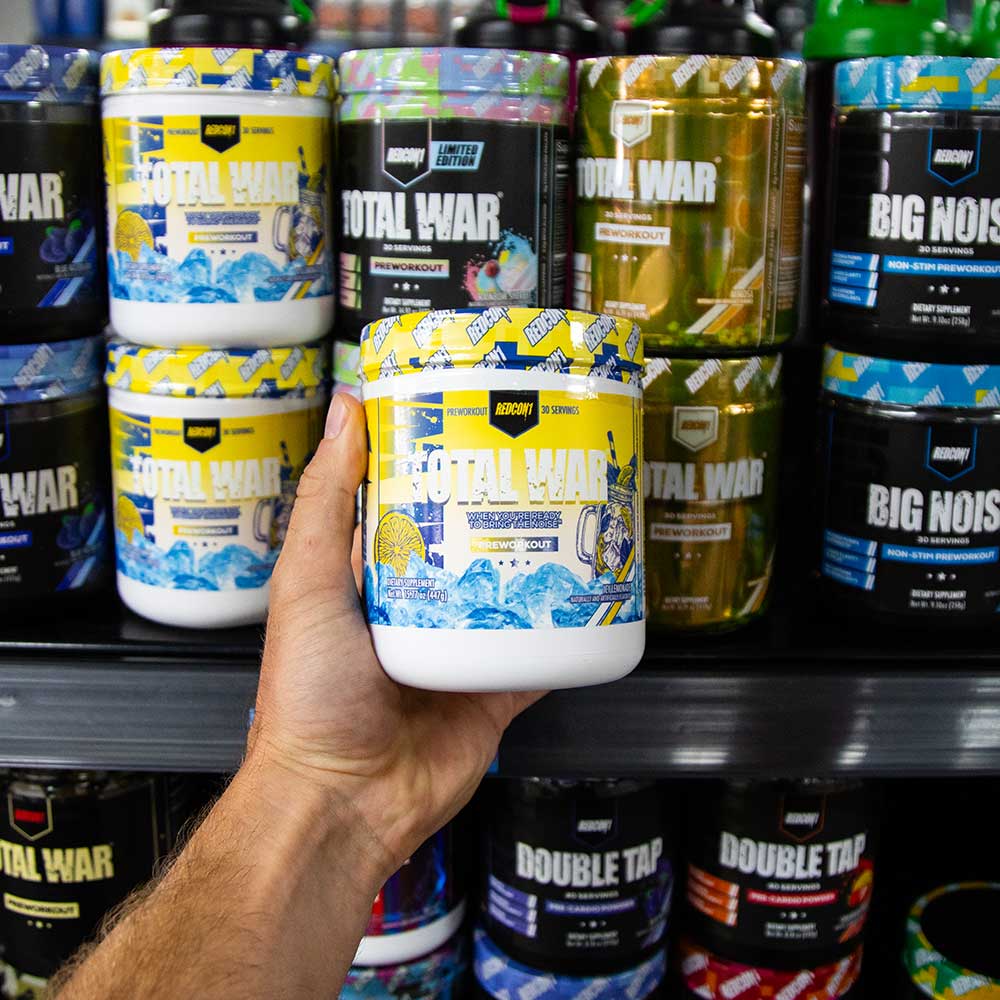Nutrition, Supplements
Pre-workout vs Coffee?
Do you think you should fuel your workouts with pre-workout or with coffee? Most people like to start their day off with a freshly brewed cup of coffee. It tastes great and smells even better, and coffee also has a reputation for waking you up and getting you in the zone. But is it good enough to replace pre-workout when it comes to getting you ready to exercise?
In this article, we’ll take a look at coffee vs pre-workout, and see which is the better option for your training sessions.
What is a pre-workout?
A pre-workout supplement is designed to supply you with the energy and nutrients to help you perform your best during an endurance exercise or resistance training. This sort of supplement usually contains a mix of important nutrients and stimulants to help you perform better and recover faster.
Is it better to take pre-workout or coffee supplements?
Coffee and pre-workouts are great for giving you that boost of energy before and during a workout, but when it comes to the better of the two; pre-workout gives you a lot more reasons to choose it.
Pre-workout provides many nutrients
It’s helpful to know that if you drink coffee, you’re only consuming one ingredient (if it’s straight black coffee), whereas pre-workout supplements often have multiple ingredients which can give you many more benefits and better nutrition. So, while black coffee gives a great boost, a pre-workout has the capacity to provide you with more nutrients to aid in optimising your athletic performance.
Your body can build a tolerance for caffeine
Coffee has been known to improve athletic performance as it is a stimulant. By activating the central nervous system, coffee binds with the adenosine receptors to give you energy without leaving you with that drowsy feeling. Unfortunately, the body can develop a tolerance to coffee or, more specifically, the caffeine levels within the coffee, which will make it less effective eventually.
Most pre-workouts contain caffeine
Most pre-workouts have caffeine in them to give that extra oomph you need for your workout, around 150 to 300mg give or take while a cup of coffee only contains 90 to 100mg. That’s quite a bit more oomph.
Reviewing the ingredients in pre-workout
Pre-workout contains a range of different ingredients specific to what that pre-workout is designed to improve. Many pre-workout supplements contain:
- Nitric oxide relaxes blood vessels and allows optimum oxygen supply (and massive pumps)
- Nootropics for improved focus and alertness
- Beta-alanine alongside other amino acids to prevent fatigue
What are the benefits of taking Pre-workout?
You’ll find that pre-workouts have some great benefits when used before exercising. These pre-workout benefits include:
- Boost in energy
- Promotion of muscle growth
- Increased blood flow
- Faster recovery
- Reduces muscle soreness
- Increased endurance performance
- Some pre-workout supplements even have vitamins and minerals that aid in strengthening your immune system and overall health
What are the drawbacks of taking pre-workout?
Unfortunately, some of the ingredients in pre-workouts aren’t suited to everyone and there are some drawbacks to taking it. Like coffee, our bodies can also build a tolerance to certain per-workouts making them less or ineffective. Here are some other drawbacks:
- Digestive issues
- Dehydration
- Headaches
- Nausea
- Jitteriness
Reviewing the Ingredients in Coffee
The ingredients in coffee are standard around the world. With so many options for coffee blends, it could be difficult to pinpoint the exact ingredients in different brands. However, coffee mainly consists of caffeine, but it also contains:
- Caffeine
- Tannin
- Fixed oils
- Carbohydrates
- Proteins
What are the benefits of taking coffee supplements?
Other than coffee having a great taste, to most people, here are some other benefits of drinking coffee before exercising:
- Boosts exercise performance
- Acts as a stimulant
- Helps with concentration
- Increased endurance
- Helps with weight loss
What are the drawbacks of taking coffee supplements?
Drinking coffee also has a few drawbacks, especially for people who have caffeine sensitivity. Some of the potential side effects of drinking coffee include:
- Your body builds a tolerance to it
- Often associated with causing anxiety and jitteriness
- Can cause tachycardia
What is the best time to take Coffee or Pre-workout?
The suggested time to take coffee for it to be the most effective is 45-60 minutes before you work out. For a pre-workout, most products will have instructions that will tell you when to take them. That said, the most common time to take a pre-workout is 30 minutes before you exercise.
How many servings of a pre-workout or coffee can I have?
Most pre-workouts suggest only having one serving a day. However, adults are able to consume up to 400mg of caffeine per day, which equates to roughly four cups of coffee. This figure is different for everyone, so be sure to know your limits before overdosing on caffeine.
Could coffee replace pre-workout?
Coffee has been the go-to drink for a shot of energy for centuries, and acute caffeine ingestion acts as a great pick-me-up beverage. It’s definitely got its perks for anyone wanting to maintain their body weight and get that energy to boost their workouts and focus. But, when looking at the benefits of both coffee and pre-workout, coffee doesn’t fare as well as pre-workout drinks do and won’t be able to replace them.
Final thoughts
Coffee has been fuelling for people since it was first discovered. It’s a great pick-me-up kind of drink and has some great benefits. But in comparison to a pre-workout, coffee doesn’t fare too well. While it aids in performance, pre-workouts have a broader list of nutrients designed to boost performance. So, if you’re looking for a quick wake-up drink, coffee’s the one. For a super pump and energy boost for exercising, pre-workout supplements should do the trick.

